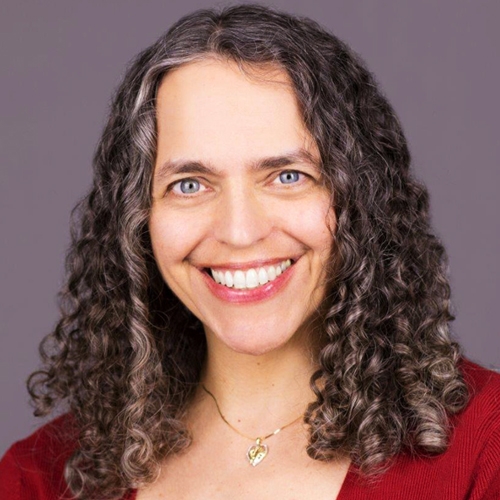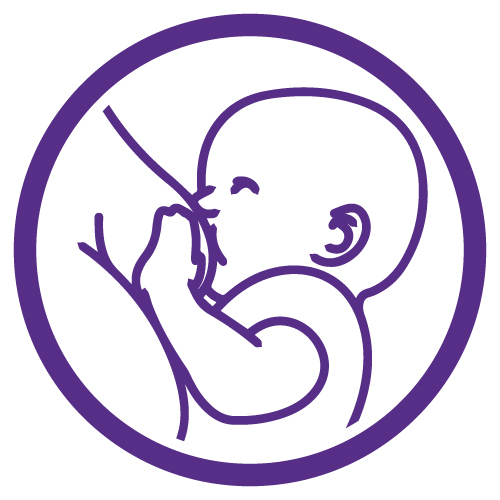 Tongue & Lip Tie Assessment Online Course(s) & Continuing Education
Tongue & Lip Tie Assessment Online Course(s) & Continuing Education
Access the latest clinical skills and research for Tongue & Lip Tie Assessment for Tongue-tie, Lip Tie & Structure professional training. These Tongue & Lip Tie Assessment online courses provide practice-changing skills and valuable perspectives from leading global experts. This Tongue & Lip Tie Assessment education has been accredited for a variety of CEUs / CERPs and can be accessed on-demand, at your own pace.
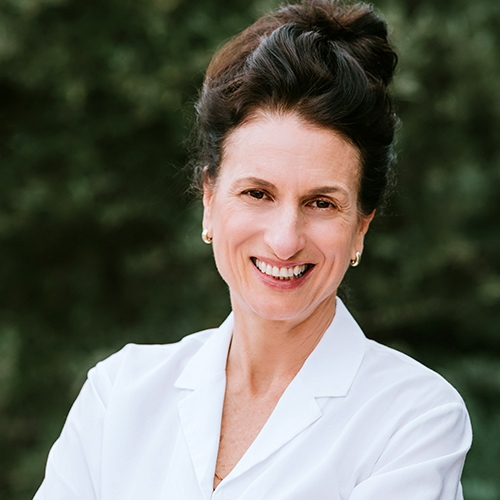
A Case for Clipping, a Case for Waiting: Difficult Decisions in Clinic

Dr. Gina Weissman began her career as a dentist, receiving her training at The Hebrew University Hadassah Medical School, Jerusalem. She is also a RN nurse and has been working as an IBCLC, Certified Lactation Consultant, since 1999. She teaches courses in human lactation for both medical professionals and future lactation consultants, mentoring them in preparation for the international exam of the IBCLC. Dr. Weissman councils mothers and releases tongue ties at her private breastfeeding clinic, HalavM. She is an expert in teaching mothers Instinctive Breastfeeding and the author of Mother's Milk, a Video Guide to Breastfeeding (Hebrew/Arabic/English).Dr. Weissman is an international lecturer and the president of the Israeli Association of Certified Lactation Consultants.She lives in Israel with her husband Amir and four sons.
Topic: Understanding the Complexities of Tongue Tie: 2020 Updates - [View Abstract]
Institutions: Department of Nursing, Laniado Hospital, Netanya, Israel, Halav-EM Breastfeeding Clinic
Background: As far as anterior tongue tie is concerned, there is a growing, vast body of knowledge that has been validated. As for posterior tongue tie, the scientific evidence is lacking and the assessment tools are not uniform among practitioners.
Medical diagnoses are not part of the scope of practice of Lactation Consultants. Hence, there is a lot of confusion among professionals (both Drs and Lactation Consultants), resulting in over diagnosis and over treatment on the one hand, and also under treatment on the other.
Aims: To present a unique perspective of an experienced Lactation Consultant who is also a dentist, experienced in diagnosing and treating various types of tongue ties.
Narrative: The discussion will focus on the clinical dilemmas regarding releasing posterior tongue ties and their implications for breastfeeding in newborns as well as in older babies.
Clinical cases of babies with posterior tongue ties will be shown to demonstrate how exclusive breastfeeding can be achieved in clinical cases with posterior tongue ties that were not released. Cases of anterior and posterior tongue ties that had been released although breastfeeding was going well will also be shown. In these cases, additional factors were taken into account, such as the palate structure and the additional consequences that Ankyloglossia may have later in life.
Conclusions: In some cases of posterior tongue ties, good breastfeeding counseling can make the action of releasing the tongue redundant. However, then we are left to consider conservatively what other effects Ankyloglossia may have on our body.
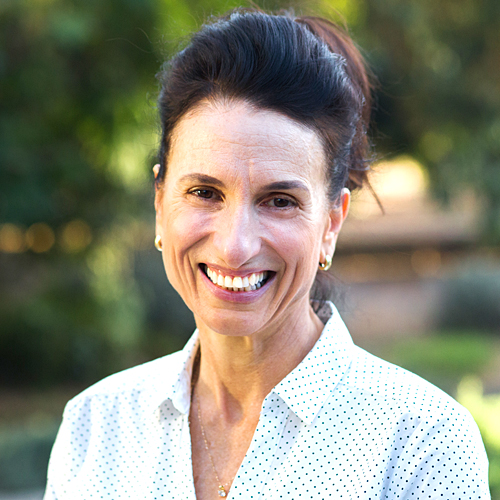
View Details / Enroll

Beneath the Surface: Anatomy and Physiology and How These Influence the Approach to Frenectomy

Justin is a Consultant Paediatrician who has worked in both the UK and Ireland. He has had an interest in Tongue Ties for over 15 years and has created multi-disciplinary pathways of care. He is Medical Director of the National Tongue Tie Centre in County Tipperary, Ireland which he established with Kate Roche, a Chartered Physiotherapist, in 2017. There he and the team provide comprehensive care for infants, children and adults with tethered oral tissues.
The management of tongue tie has many approaches. In this presentation we will explore the anatomy and physiology of normal tongue frenulae and that of ankyloglossia. How the structures affect function and how to manage them to optimise function. We will also discuss the problems that can be seen following incomplete release and reattachment. We will also cover complications during surgery and management options.


Catherine Watson Genna BS, IBCLC is an International Board Certified Lactation Consultant in private practice in New York City. Certified in 1992, Catherine is particularly interested in helping moms and babies breastfeed when they have medical challenges and is an active clinical mentor. She speaks to healthcare professionals around the world on assisting breastfeeding babies with anatomical, genetic or neurological problems. Her presentations and her writing are enriched by her clinical photographs and videos. Catherine collaborates with Columbia University and Tel Aviv University Departments of Biomedical Engineering on research projects investigating the biomechanics of the lactating nipple and various aspects of sucking and swallowing in breastfeeding infants. She is the author of Selecting and Using Breastfeeding Tools: Improving Care and Outcomes (Praeclarus Press 2009) and Supporting Sucking Skills in Breastfeeding Infants (Jones and Bartlett Learning 2008, 2013, 2017) as well as professional journal articles and chapters in the Core Curriculum for Lactation Consultant Practice and Breastfeeding and Human Lactation. Catherine served as Associate Editor of the United States Lactation Consultant Association’s official journal Clinical Lactation for its first seven years.
Topic: Breastfeeding Strategies for Tongue-tied Infants - [View Abstract]
Topic: Critical Assessment of Apparent Tongue-Tie - [View Abstract]
Topic: Introduction to Cervical Auscultation - [View Abstract]
Topic: Lactation Support for Infant Biomedical Challenges - [View Abstract]
Topic: Organization of tongue movements before and after frenotomy for posterior tongue-tie: an Ultrasound analysis - [View Abstract]
Topic: Positioning and Latch for Breastfeeding - [View Abstract]
Topic: Ultrasound Analysis of Sucking: Tongue-Tie and Confounders - [View Abstract]
Topic: Using Breastfeeding Supplementers - [View Abstract]
Tongue tie is one potential cause of breastfeeding difficulties, but most authorities fear that frenotomy is overused. This presentation explores research on the role of the tongue during normal breastfeeding; briefly reviews validated assessment tools, and proposes other management, structural and medical issues that impact tongue mobility and feeding.
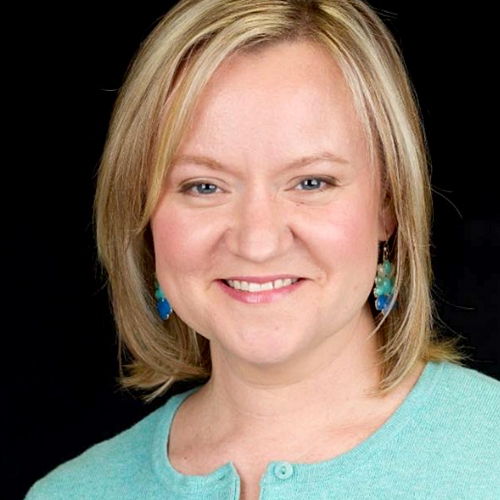
Foundations of TOTS Assessment: Anatomy, Appearance, and Function

Lisa Lahey RN, IBCLC, OMT has worked for 23 years in maternal child health as a nurse and lactation consultant in L/D, postpartum, newborn nursery, NICU, and perinatal education. Lisa is currently working on her master's degree for Family Nurse Practitioner. An IBCLC for 20 years, Lisa has a special interest and expertise in tethered oral tissues. Lisa’s private practice Advanced Breastfeeding Care provides home visits or office consults for complex feeding issues as well as joyful breastfeeding. Lisa also provides myofunctional therapy to babies, children, and adults in a functional orthodontic office. Lisa is a contributing author to the book Tongue Tied. Lisa enjoys teaching assessment fundamentals and oral exercises when she lectures at conferences and courses. Clinical photography and nature photos are also a favorite hobby. Most of all, she is a mom to five children (all were breastfed) who keep her busy and remind her daily of life’s joys and treasures traveling and hiking with her family to unplug from a busy pace in life.
The IBCLC must develop and expand knowledge of the 3 foundations key to TOTs assessment which are anatomy, appearance, and function. This talk will review anatomy and physiology concepts, explore appearance of frenulums, and discuss current functional screening tools that can be utilized for assessment.
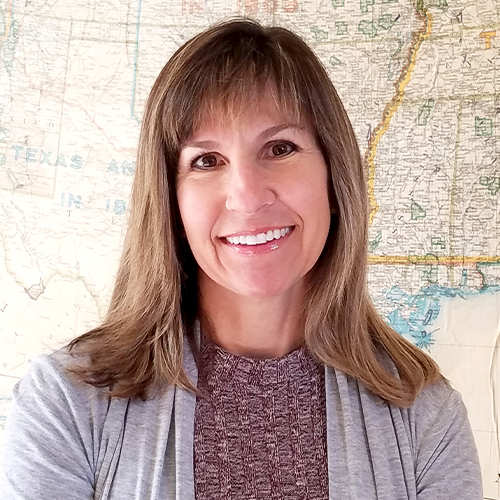
Infant Airway and Tongue-Tie: Importance of Breathing for Feeding, Growth and Development

Upon becoming a mother and struggling through breastfeeding both of her babies, René first began supporting breastfeeding as a peer counselor, with a desire to help others as she was helped, and continues to support families in this way. She became an IBCLC and started her private practice, First Food For Baby, to provide professional lactation care a few years later. Recognizing the need to serve underinsured and marginalized families, she founded the Phoenix based 501(c)(3) non-profit organization, American Breastfeeding Foundation, in 2020 that will one day reach and support families nationwide, facilitating specialized care for underserved populations.
René loves helping families through their unique breastfeeding journey, providing guidance to avoid complications and empowering them to exceed their goals. She welcomes the challenge this brings, from the complexities of airway issues to feeding position experimentation. She cherishes the loving interactions between babies and their parents. She considers it an honor to be trusted with each precious new life and to witness the intimacy and beauty that is breastfeeding. She bases her foundational knowledge on evidence-based data and research but realizes that the human experience she’s has learned over the past 25 years is equally important.
This presentation is focused on infant airway as it relates to tongue-tie. Participants will learn to recognize subtle, unhealthy deviations from normal, healthy breathing, including general tongue presentation and breathing patterns (especially before and after tongue-tie release). This is important for many reasons but could be helpful in contributing to optimal frenectomy outcomes and avoiding regression. Additionally, the importance of identifying at risk infants to help avoid common misdiagnosis and labelling that is more often actually struggle with breathing and sleep will be discussed, all of which ultimately optimize breastfeeding outcomes and health for the lifespan.
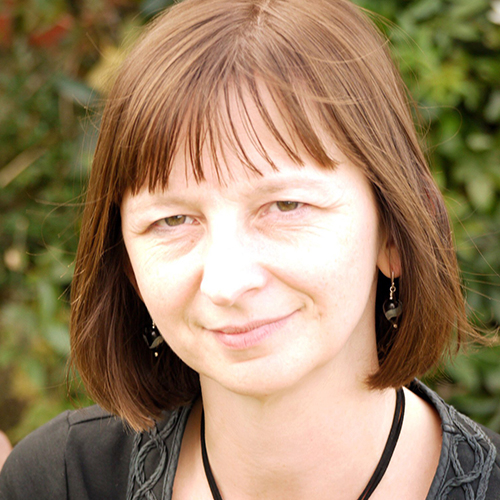

Sarah is a Registered General Nurse, Health Visitor, International Board Certified Lactation Consultant and Tongue-tie Practitioner with a busy private practice based in Cambridgeshire, UK. Sarah is a founder member and former Chair of The Association of Tongue-tie Practitioners and has written a book for parents and professionals, ‘Why Tongue-tie Matters’. Sarah lectures nationally and internationally on infant feeding and tongue-tie.
Topic: COVID-19 and Implications for Tongue-Tie Division in Infants - [View Abstract]
Topic: Is This a Tongue-Tie: How Do We Decide? - [View Abstract]
Topic: The Elephant In The Room - Bleeding Post Tongue-Tie Division - [View Abstract]
This presentation will discuss the difficulties that surround defining and assessing for tongue-tie. It will explore what we know about the role of the tongue in infant feeding by reviewing evidence from ultrasound studies and other research on latch and examining what this tells us about the normal functioning of the tongue. Various available assessment tools will be described along with how these may assist in differentiating between a normal and abnormal lingual frenulum. Also discussed will be other causes of tongue restriction and how to differentiate these from an abnormal lingual frenulum.


Autumn R. Henning, MS, CCC-SLP, is a certified and licensed Speech-Language Pathologist with Certificate of Clinical Competence from the American Speech-Language Hearing Association (ASHA). She graduated Magna Cum Laude from the University of Kentucky with her Bachelor’s and Master’s Degrees in Communication Disorders. Autumn is a recognized provider by Ankyloglossia Bodyworkers, has been a guest presenter for Creating a Care Plan for Tongue Ties and delivered a webinar through Innara Health entitled Tethered Oral Tissues: What’s a Therapist to do?. She has served on local breastfeeding professional panels and delivered numerous presentations to parents and medical professionals. Autumn has completed specialty continuing education including Beckman Oral Motor, Vital Stim, and Foundations in Myofascial Release for Neck, Voice, and Swallowing as well more than a dozen professional courses on pediatric feeding and related topics. She is pursuing further education in the areas of lactation and orofacial myology. Autumn has experience working in the school system, early intervention, an ABA center and outpatient clinics including a nationally award-winning intensive feeding program. Autumn currently specializes in pediatric feeding at a non-profit outpatient clinic in Greenville, SC and serves on the board. She recently founded a continuing education company, Chrysalis Feeding, LLC. The flagship course is TOTS: Tethered Oral Tissues Specialty Training that launched this Fall.
This presentation is an introduction to tethered oral tissues and their impact on oral function beyond breastfeeding. Participants will learn about the oral skills necessary for proper speech and solid feeding and how tethered oral tissues alter this optimal function. Participants will learn how to effectively communicate with patients, families, and other medical professionals on this topic and make appropriate referrals with recognition of signs and symptoms affecting oral function.
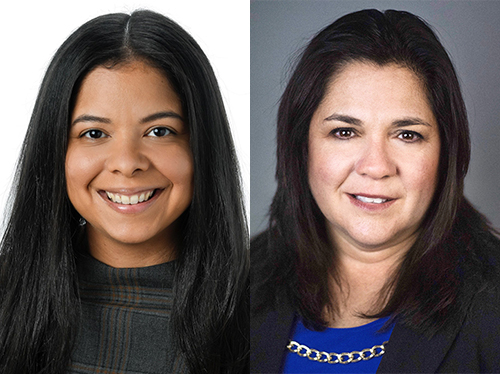
The Untethered Method Integrated: Team Approach to Assessment and Oral Habilitation

Shana Quarrie is an Occupational Therapist for over 12 years and a Certified Lactation Counselor for 5 years and now an IBCLC as of June 2023. She has worked in the pediatric setting for over a decade and in one of the largest Level 4 NICUs in the United States. Shana is one of the Co-Founders of Baby B.L.I.S.S. Feeding Collaborative of Central Florida a private practice formed with two RN, IBCLC’s. They help families prenatally, antepartum and postpartum navigate growth development and feeding journey.
Shana specializes in the medically complex infant such as 23 week preemies, brachial plexus injuries and any neurodevelopmental delays. Shana finds great improvement when combining neurodevelopmental techniques into her practice for optimal feeding and development outcomes. Her mantra is to help families thrive not just in her clinic during their sessions but in their natural environment.
Annette Leary is a registered nurse with over 35 years of experience working in Maternal Child Health (pediatrics, postpartum, home health care and level 2 NICU). She became an IBCLC in 1995. Annette owns a private practice providing home, office, and virtual visits: Orlando Lactation and Wellness Services. She formed a collaboration company Baby B.L.I.S.S. Central Florida Feeding Collaborative, with an occupational therapist and IBCLC. They help families prenatally, antepartum and post partum navigate the growth, development and feeding journey of their children.
Annette began her Upledger Craniosacral therapy training in 2015, taking advanced maternal and pediatric specialty classes. She finds great improvement incorporating craniosacral therapy techniques with lactation consulting. Helping Families Latch onto Parenting has always been Annette's mantra.
Parents are seeking answers to their baby’s feeding difficulties. They verbalize that they are confused by conflicting and contradicting information. They seek opinions from the internet, social media, friends and health care providers that further frustrate them. These families often have to self-navigate this feeding and oral health journey for their baby. They are seeking a functional assessment of the baby’s ability to organize the baby’s suck, swallow and breath pattern to get a differential analysis. Finding providers who can administer the assessment and provide lactation support to the feeding difficulties often means multiple appointments, different offices, and prolonged time. Collaborative practice models place a focus on co-evaluations, co-treatments and care plans to provide the parents with a comprehensive guide of solutions and tools. This allows them to facilitate their baby’s oral motor habilitation and improve their feeding abilities in a timely manner within a single location. These complete assessments, therapeutic modalities and care plans help families feel empowered to make the best decisions on whether to proceed with a frenotomy or not. This program will include 2 case reviews of a family who chose to do the frenotomy and one who did not and how the pre and post frenotomy support care assisted these decisions.

Tongue-Tie and the NICU: A Neonatologist Perspective

Dr. Ankur Bio Update - Dr. Kumar Ankur, MD, DNB is working as an Associate Director & Head of the Department of Neonatology at BLK MAX Super Speciality Hospital Delhi, India. He has been working in the field of neonatology with private and non-goverment organisations for improving neonatal healthcare in the country. He is the national faculty and trainer for FBNC (Facility based neonatal care), Neonatal Resuscitation, Kangarroo Mother Care (KMC) and the national assessor for Neonatology Fellowship accreditation programme of India. He has been invited as an expert speaker, faculty, chairpersons for various national and state level conferences and workshops. He has many publications in national & international journal and authored many chapters, guidelines published by Indian Academy of Pediatrics & National Neonatology of Forum Delhi & India. He is also the co-editor of Handbook of Neonatal Clinical Practices. He is also running training program in neonatal Fellowship for postgraduate students & neonatal nurses. Currently he is also the Secretary of prestigious National Neonatology Forum, Delhi. National Neonatology Forum (NNF) is a strong and large body of more than 8000 neonatologists across India and abroad. NNF has been actively involved in advocacy, policy making, research and ensuring quality health care to newborn for the last 4 decades. He had been past Secretary (2014) & President (2018) of Indian Academy of Pediatrics (IAP), Central Delhi Branch.
Topic: Tongue-Tie and the NICU: A Neonatologist Perspective - [View Abstract]
Tongue Tie is an interesting clinical subject with extreme variability in understanding among lactation consultants, neonatologists, pediatricians, speech therapists, pediatric surgeons, and dental/oral surgeons. There is still no consensus on diagnosis and mode of treatment. However, in recent years there seems to increase reliance on cutting the tie despite the lack of robust evidence. As clinicians, we should always give an unbiased approach towards any neonate's feeding-related problem. Holistic systems like simple bodywork and prolonged skin-to-skin contact, and family involvement can often resolve infant feeding issues. Family-centered care (FCC), based on collaborative participation of the family and a team of health care providers, is found to increase infants' well-being in neonatal critical care units. Our own postgraduate student did her dissertation To Determine the Prevalence of Lingual Frenulum in Infants ≥ 1800 grams of Birth Weight Affecting Breastfeeding (Submitted for Publication). We shall be sharing the Indian data and providing more information about the prevalence of tongue-tie in the NICU, how to distinguish between tongue-tie and other common feeding issues in neonates and the importance of holistic care.
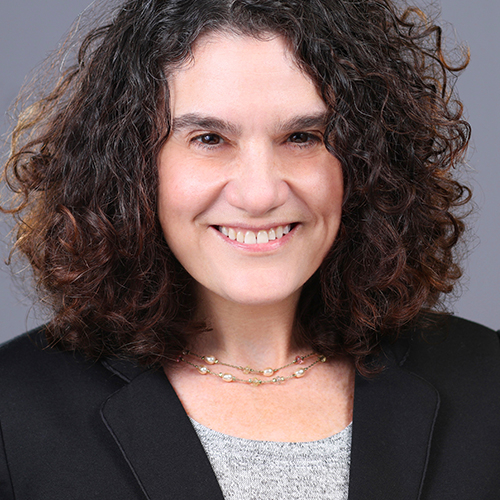

Leslie has been providing lactation support in Central New Jersey for over 18 years - as a La Leche League (LLL) leader since 2002, an IBCLC at Mercer County WIC from 2014 to 2016, and as a private practice IBCLC since 2011.
Leslie grew up in New York and New Jersey. She graduated from Cook College/Rutgers with a BS in Biochemistry, and from Rutgers University/UMDNJ with a PhD in Biochemistry and Molecular Biology. Leslie's difficulties with early breastfeeding, the help she received from LLL, and challenges with returning to work laid the foundation for her understanding of the importance of skilled and compassionate lactation and infant feeding support.
Topic: Untangling the Big Picture of Tongue-Tie Assessment - [View Abstract]
IBCLCs assess chest/breast and bottle feeding skills, and infant’s oral and body structures and motions that contribute to, or inhibit, the process of feeding as well as post-feeding comfort. When infants present with feeding dysfunction, the root of the issue is often tight frenulum (ties), or asymmetric/tense muscles/fascia, or both. IBCLCs help families navigate the differential assessment of feeding dysfunction, and at the same time support the family’s feeding and milk supply choices. This presentation will examine the bigger picture of assessment when ties are suspected. Because a narrow focus on only the oral cavity can negate other contributing factors, initial and follow-up assessments need to include not just what is going on in the infant’s mouth, but also take into account the infant’s body as a whole, family dynamics, feeding goals, and the creation of a manageable plan for the family. IBCLCs aid with oral/body exercises, referrals for oral evaluations and/or bodywork, help with pre/post frenotomy oral skills, and more - helping to adjust the care plan as infant feeding skills and parent goals grow and change. Developing the skill of big picture assessment is crucial in order to determine the best course of clinical care, meet the families needs, and allow for the best possible outcome.






